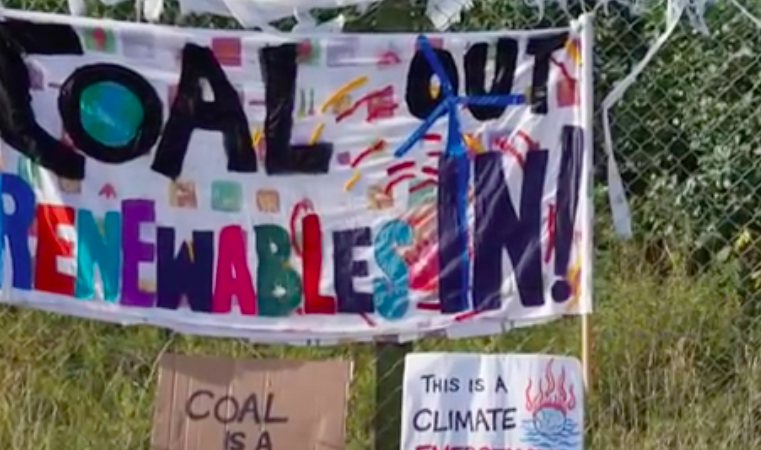The element of the Energy Bill that has got the most positive attention, and rightly so, has been amendments aiming to insert into the bill support for community energy schemes

Debate on the committee stage of the Energy Bill started back on September 5th, so Green Party members at our Policy Festival on Sunday who were puzzled about exactly where we are up to with it can certainly be excused for their confusion.
It was out of the picture altogether in the (brief) premiership of Liz Truss (rumour had it Jacob Rees-Mogg didn’t like it and so it was to be dropped). But then after a few weeks of Rishi Sunak, it reappeared on the programme of the House of Lords with as little fanfare as it has disappeared.
You might say, as I often do, that this is #NoWayToRunACountry. But all we can do, for the moment, is work with what we’ve got.
Thus far, the element of the Energy Bill that has got the most positive attention, and rightly so, has been amendments aiming to insert into the bill support for community energy schemes that can boost renewable energy generation while spreading prosperity around, rather than concentrating cash in the hands of multinational companies. And I’ve got hopes for the amendments progressing, given that MPs from all parties – including Tories – back the Private Member’s Bill, the Local Electricity Bill, to have the same effect.
Finally, this week we will be getting to the end stages of the bill, and a crucial group of amendments (which you can find listed here) that will be a test not only for the government, but also the larger opposition parties.
Credit to the Liberal Democrats, who through the hands of Lord Teverson, put down an amendment to say no new coal projects in the UK, which I’ve also signed. That’s gained new significance since the astonishing approval in December of a new coal mine at Whitehaven in Cumbria. It was thought new coal was dead and dusted – particularly after the hard-won victory by campaigners against the plans for one on England’s opposite coast, at Druridge Bay.
I would hope – although no Labour peer has signed it – that the Labour front bench in the House of Lords will express support for that amendment.
But the Green Party, through my amendment, is of course going further – as you’d expect. I have also put down amendment number 227 demanding no new fossil fuel – oil or gas – fields or licences in the UK.
That means we can expect the debate, in the gloomy surroundings of the Moses Room, the Houses’ second chamber, to shed some light on the positions of not just the government, but also the Labour and Liberal Democrat parties.
This group of amendments, likely to come up around 4.30pm today (although timings in the House are hard to predict), also contains a call for a ban on fracking (from Lord Teverson) and a modest but useful call for transparency of taxpayer liability in relation to decommissioning offshore oil and gas production from Liberal Democrat Baroness Sheehan.
There’s also a late amendment to make the government turn the Oil and Gas Authority into North Sea Transition Authority and mandate it to be compatible with net zero commitments. (Which might be a complicated way to achieve the same thing as my amendment, since new oil and gas is obviously not net zero compatible.)
There are also two amendments from the Conservative backbencher Lord Moylan, opposite in intent to the others, which direct that domestic gas production be increased and that standards for fracking be reduced – because amendments are grouped by subject area not intent.
Explaining how the House of Lords works is not easy. But this group in microcosm is a useful case study. We’re at the committee stage, so no votes will be held (usually). All of these amendments will be withdrawn by proposers, something that often disappoints watchers.
But it is at the bill’s next stage – the report stage, likely to happen in about a month’s time – when having had all these different proposals discussed, we will, ideally, settle on the best way forward that might have a chance of winning a vote, and in the main Lords Chamber, seek to ensure there are enough Labour, Lib Dem, crossbench and other peers to defeat the increasingly stuffed Conservative benches, into which more appointments flow almost every day.
In the global context where an oil company head has been appointed chair of COP28, today’s debate is more important than ever. While he is talking – utterly inappropriately – about new oil and gas – it is important that the UK, as COP26 chair, sends a message that this should be off the table.
That’s the message the Green Party is seeking to deliver today.
To reach hundreds of thousands of new readers we need to grow our donor base substantially.
That's why in 2024, we are seeking to generate 150 additional regular donors to support Left Foot Forward's work.
We still need another 117 people to donate to hit the target. You can help. Donate today.



